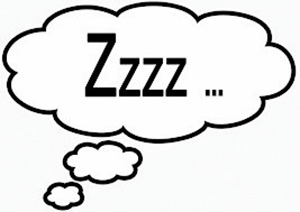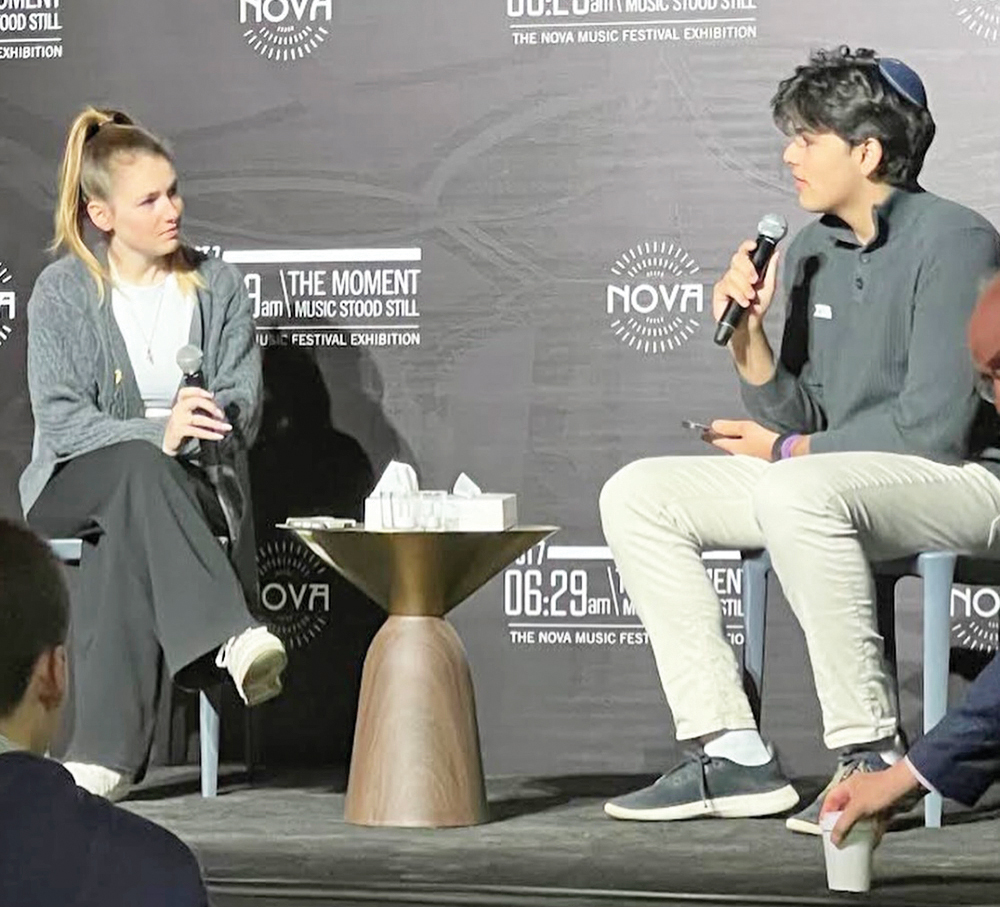
In case you are afraid that the honor and respect conferred upon rabbis goes to their heads, rest assured that rabbis have a built-in “humility promoter.” They are called sermon snoozers. Most of them seem to sit in the front row.
I should add that many rabbis have other humility builders as well, which include, but are not limited to, the shul president, a bored board of directors and salary discussions. I personally am blessed not to know of such humility-builders in our shul.
A rabbinical colleague related that he feels there is great purpose served in the five-minute speech he delivers on Friday evenings, following Kabbalat Shabbat. In his words, “either my congregants hear a nice Torah thought based on the parsha, which they can repeat at their Shabbos table, or they get a brief power nap, which gives them energy so that they not fall asleep on their family during their Shabbat meal.”
It’s fascinating that everyone seems to feel tired on Friday night during the short speech, no matter if it’s 5 p.m. during the winter, or 8 p.m. during the summer.
I remember one particular Friday night when I was speaking in a certain shul to a relatively small crowd, and I was pretty sure that the entire audience had dozed off. I was tempted to test it out by interjecting some gibberish, to see if the assemblage would continue their subconscious head-bobbing and nodding. But I wasn’t sure if one particular person was listening, despite the fact that his eyes were closed, so I desisted.
Rabbi Zev Leff recounts that on one occasion, a congregant approached him on Sunday morning to tell him that the rabbi’s Shabbat sermon had kept him up all night on Motzei Shabbos.
Rabbi Leff continued that before he had a chance to start feeling impressed with the poignancy of his own words, the man explained that he always has a hard time falling asleep at night when he slept during the day. The sermon had provided him with just that opportunity.
My rebbe, Rabbi Berel Wein, relates that he once had a congregant who consistently slept through his drashot. As soon as Rabbi Wein mounted the podium the man closed his eyes and slept until the drasha ended. [I find it encouraging to know that even a noted and talented speaker like Rabbi Wein has snoozers.]
Then, one Shabbos, Rabbi Wein walked up to the pulpit to make a brief announcement, and then went back to his seat. That week the man slept through Musaf. Rabbi Wein added that the man was angry at him afterward, because he was convinced that he did it on purpose.
A rabbi once told me that in his experience it seems that women seem to behave in the opposite manner during shul speeches. Through the mechitza he could tell that the women are locked in, listening to every word.
He added that he always wanted to have the women sit up front during the drasha, while the men more comfortably dozed off behind the mechitza.
Over time I have come to learn that not everyone who appears to be sleeping truly is. There are individuals who listen with their eyes closed. The majority of sleepers really want and try to listen at the beginning, even as fatigue gets the better of them.
When they get home, if anyone at their Shabbos table asks what the rabbi spoke about, they’ll answer “about 20 minutes” or “about the parsha,” and then quickly change the topic.
Before the miracles of Purim occurred, the Jewish people seemed to have slipped into a national spiritual fatigue. It wasn’t that they weren’t serving God or performing the mitzvot, it was more that they were doing so on autopilot, as a matter of obligation and emotionless rote.
The Purim miracle served to jumpstart the nation emotionally. It reignited their collective inner spark and brought back a feeling of pride to be the bearers of the Torah.
Shlomo Hamelech states in Shir Hashirim: “I am asleep, but my heart is awake. The voice of my beloved is knocking.
Open for me, my sister, my friend, my dove, my perfect one…”
Inspiration knocks periodically, but we must be willing to open the door to allow it in. That is accomplished by rousing ourselves from our stupor so that we can emotionally internalize the inspiration.
Such is what occurred at the time of Purim. It’s a holiday that celebrates our spiritual rejuvenation and infuses every Jew with a sense of joy and pride in being part of the Chosen Nation.
Purim doesn’t call out to us to wake up; it sweeps us off our feet in a frenzy of joy and unity.
It’s a holiday that brings with it a spiritual awakening. Therein lies the source of its intense joy and celebration.
May we all attain it.
Rabbi Dani Staum, LMSW, is the rabbi of Kehillat New Hempstead as well as a rebbe and guidance counselor at Heichal HaTorah in Teaneck, New Jersey, principal at Mesivta Ohr Naftoli of New Windsor and a division head at Camp Dora Golding. He can be reached at [email protected].
Looking for “instant inspiration” on the parsha in under five minutes? Follow him on TorahAnytime.com.













